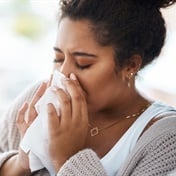
Researchers surveyed the parents of 80 000 children in one of six languages and found that association held even after they took into account where families lived and how often they moved, as well as their race and income.
"This is definitely something we see clinically and we're trying to better understand, what is it in our environment that's increasing the risk of allergic disease?" said Dr Ruchi Gupta, who studies allergies at the Northwestern University Feinberg School of Medicine in Chicago but wasn't involved in the new research.
"Food allergies have increased tremendously," she said.
"We do see people who come from other countries don't tend to have it, but immigrants who are maybe second generation, they're identical (to US born people)." It's not obvious what explains that pattern, researchers said.
According to Gupta, two possible culprits are the so-called hygiene hypothesis - which suggests kids in the US are too clean, and their immune systems never get exposed to common allergens - or the poor quality of American diets.
Lead researcher Dr Jonathan Silverberg from Beth Israel Medical Center and St Luke's-Roosevelt Hospital Center in New York said climate, obesity and various infections might also be playing a role.
"The results of the study suggest that there are environmental factors in the US that trigger allergic disease," he said in an email.
"Children born outside the US are likely not exposed to these factors early in life and are therefore less likely to develop allergic diseases."
No surprise
Surveys were completed by parents of kids and teens in 2007 and 2008. Just over 20% of children born outside the US had any type of allergic disease - including asthma, eczema, hay fever or food allergies - compared to between 34% and 35% of those born in the US.
What's more, the risk of allergies increased with the more time foreign-born children spent in the US, Silverberg and his colleagues wrote in JAMA Pediatrics.
For example, 27% of foreign-born kids who had immigrated more than a decade earlier had any type of allergy, according to their parents' reports, versus 17% to 18% of those who had moved to the US within the past two years.
"You acclimate to wherever you are and you pick up whatever is going on there," Gupta explained.
"The findings here are very interesting - and not surprising."
Silverberg said he hoped the results would lead to further discoveries of what puts US kids at risk for allergies and how to prevent them.
For now, Gupta recommended parents make sure their children eat a diet with plenty of fruits and vegetables.
And allowing them to play in the mud a little bit probably wouldn't hurt, she said - with proper hand-washing afterward, of course.




 Publications
Publications
 Partners
Partners















